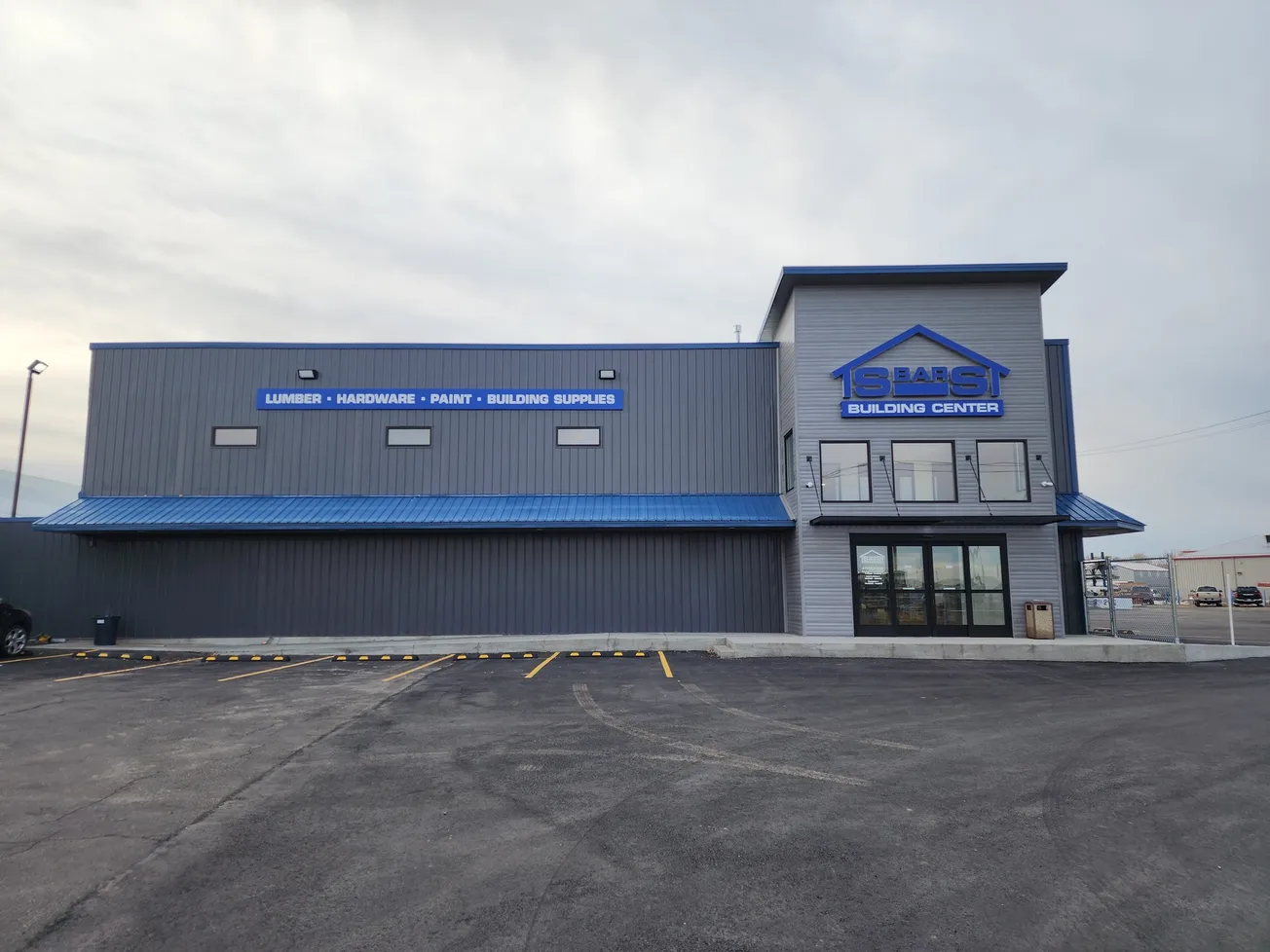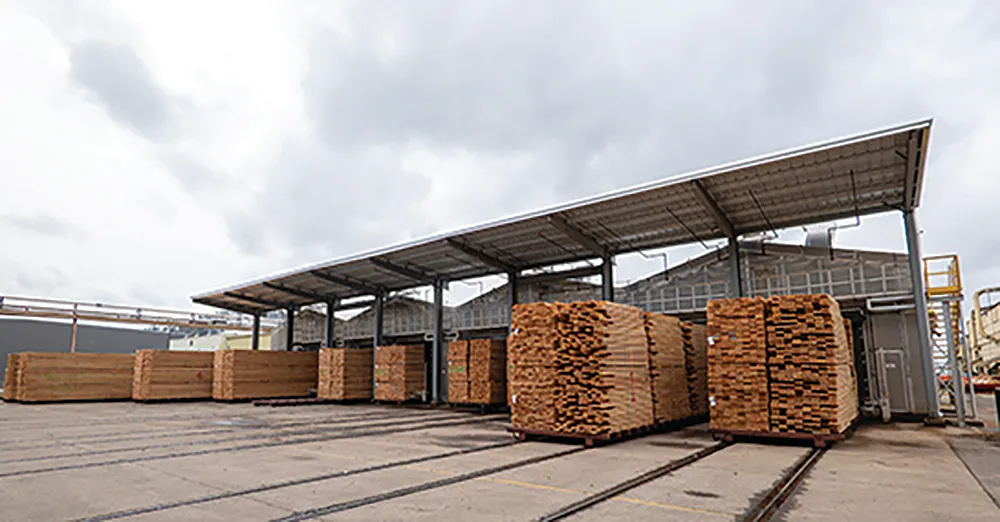Table of Contents
When you think of Wyoming, you think of wide, open spaces—no acres of tract developments, no skyscrapers slicing the pristine skyline—and you’d be right. Rawlins, Wy., where Build-Rite Do it Center stands, is “110 miles from any big city—Laramie, Rock Springs, Casper”—says Matt Arnold, the third-generation (by marriage) owner, who wedded his college sweetheart, who happened to be the boss’s daughter. Six kids later, he’s in the boss’s chair himself, returning after his father-in-law retired three years ago.
The outfit he took over had been launched back in the Fifties by the owner of a construction company. He kept encountering difficulties getting the materials he needed, so he launched his own little yard. Since then, it’s changed locations three times, most recently in the Eighties to a 3.5-acre spot housing 10,000 sq. ft. of retail space.
That’s right-sized to serve this community of 10,000, where Build-Rite is the only act in town, if you don’t count the Farm & Ranch and hardware stores. Its customers range from rural ranch and farm owners to an industrial refinery, with its repeated servicing needs, to the local contractor crowd plus the town’s walk-ins. Rawlins’ biggest employers are the state penitentiary located here and Sinclair Wyoming Refinery Co., one of the biggest in the Rocky Mountain region. The railroad, too, Matt adds. New housing? “Rawlins is kind of land-locked, so it can’t expand. So we do home remodeling, additions, barns. A new high school project. Things like that.”
Matt welcomes the diversity. He’s here to help with it all. He’d done some construction work, so he knows those ropes. Back when he first started at the yard, he loaded trucks and hauled materials, then moved inside to serve as a salesperson. He took a break and left to start his own construction company. “I built homes for 10 years, so I’ve gained a lot of hands-on experience I can pass on to others.”
By the time he and his wife returned on the eve of her father’s retirement, no sooner did he get settled in the boss’s office than the economy crashed. “Everything died,” he recalls. “The energy sector that’s prominent here took a big dive. Lots of people in town got laid off. (In fact, BP just last week laid off another 30.) So I scaled back on the number of employees, from 35 to our present 22, and cut back on a couple of niches. We’d housed a Radio Shack and taken on some clothing lines, but we went back to our roots as a lumberyard.
“Our managers had been in place forever—our yard foreman, our inside floor gal—so even though we were short-handed, we carried on. Our goal remains to take pride in opportunities to help everybody with their projects; to provide knowledge so those projects come out right,” Matt declares.
Despite being 110 miles from anywhere—yes, there’s competition. “Because we’re an isolated community, people enjoy leaving town on weekends, driving away for entertainment. And while they’re on the road, they’ll pass a big box.
“Folks here are very price-conscious—very. And we’re not the cheapest. We counter that by providing more product info—like how to hang rock siding. People have become extra price-conscious because of the volatile market in the (nearby) oil industry: up and down, boom to bust. It’s tough,” Matt acknowledges.
To counter that, he says, “we find the best deals we can. We’re not the cheapest: We carry very nice things—things I’d use in my own home, quality that Walmart and Amazon don’t supply. Our contractors are pretty savvy. They’ve been in business a long time and know what they’re doing. They like that we try to be a little different, carry a higher grade of lumber. (The competition handles cheap, gnarly wood. Ours is nice-looking, and if there’s ever an issue, we take care of it, not put them off.)
“Plus,” Matt adds, “I like to introduce new products. Because I built homes for 10 years, and owned a construction company, I have a lot of experience. And I keep up with what’s new, fancier, nicer, easier. I’m very familiar with new products and pass on that information. ‘We used this in my own home,’ I say, and invite them to stop by and take a look. ‘It’s super-easy, so drop by,’ I tell them.
“To attract new business, our sales guy visits with people. We had a hailstorm just come through town, so he’s out there. And we use Facebook to draw younger, newer customers. My generation was very hands-on, but younger folks, just out of school, haven’t had that opportunity. They’re a little scared to take on a project, so we urge them, ‘Use our advice and help.’
“To draw female shoppers, we highlight Pinterest projects. If they want to build one, we’ll cut the lumber for free. Quite a few women are into it, and they’re every bit as talented and gifted as the guys. A couple of gals in town run a business of home-décor signs, and they buy a lot of wood from us, too. To draw more women shoppers, we’ve added SKUs and tripled our styles of moulding, which is doing really well.”
Build-Rite also has won a rep for providing the best Christmas trees and decoration selection in the county every holiday season—“something my father-in-law started,” says Matt, who carries on the tradition by building a winter scene, using a model train set, that takes him over a week to assemble. “We also decorate with poinsettias and trees and add some gift-type items for the season.”
The company acquired a second location back in the Eighties in Saratoga, Wy., an even smaller town (pop. 3,000, give or take) 40 miles distant. “We’d already been kind of competing there,” Mike explains. “Saratoga is more of a resort area, with Brush Creek Ranch at the base of the mountains. Ivanka Trump spent a week there. The Kardashians, too. It’s pretty remote, a quiet spot” that draws celebs who seek a private retreat. “Our store there has done really well, especially when the economy was down”—which didn’t deter that deep-pocketed crowd from building second or third homes in Saratoga, eager to get away from the hustle and bustle of Colorado.
“And the contractors there are very loyal to us,” Matt adds.
“Why do I like working here?” he repeats a reporter’s question. “Coming back when my father-in-law retired gave me freedom. The flexibility, say, to take off time to attend my kids’ games.”
What about those six kids—a fourth generation in the making? “Too soon to tell,” Matt counsels. But he’s got his fingers crossed.






